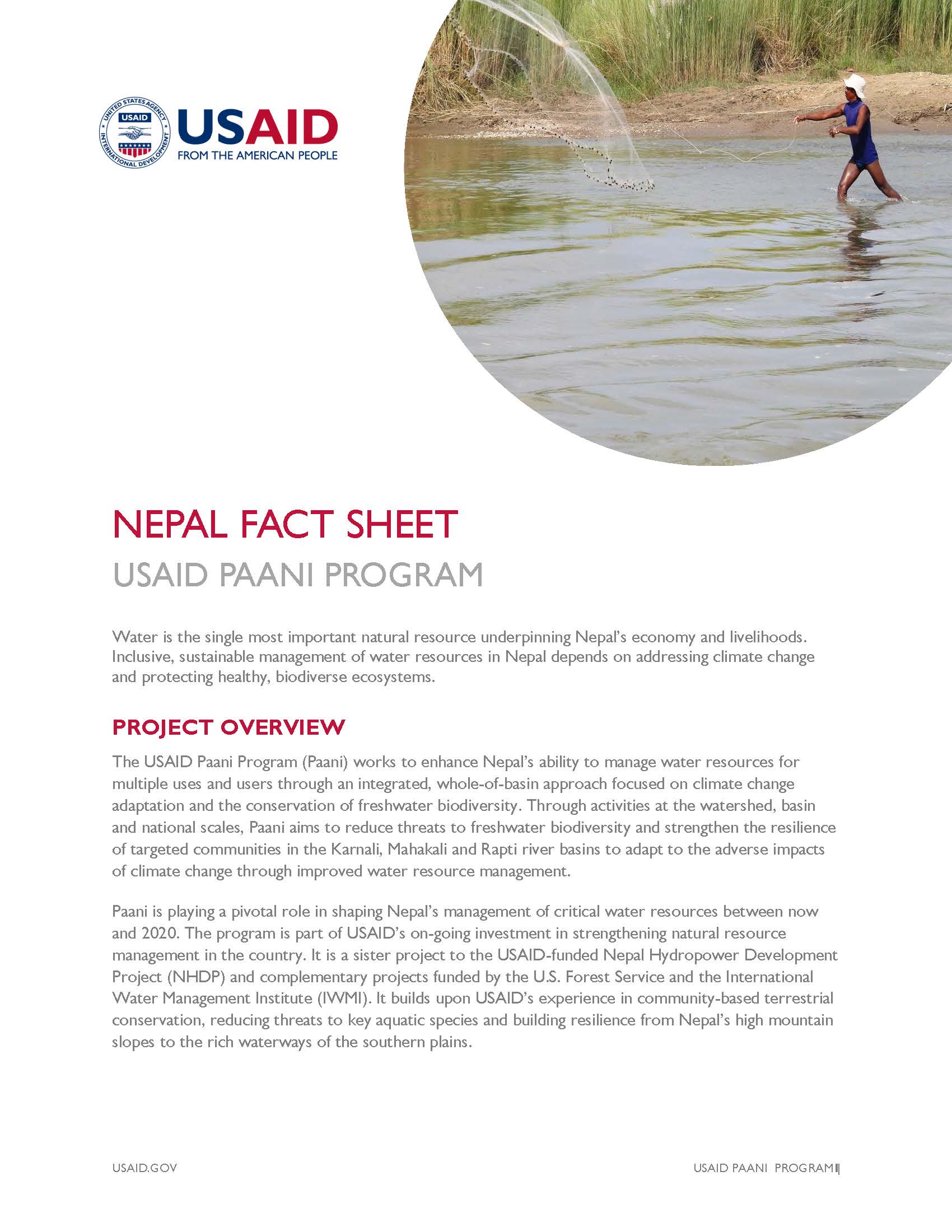Speeches Shim
PROJECT OVER VIEW
Fact Sheet: PAANI PROGRAM ![]() (pdf - 286k)
(pdf - 286k)
The USAID Paani Program (Paani) works to enhance Nepal’s ability to manage water resources for multiple uses and users through an integrated, whole-of-basin approach focused on climate change adaptation and the conservation of freshwater biodiversity. Through activities at the watershed, basin and national scales, Paani aims to reduce threats to freshwater biodiversity and strengthen the resilience of targeted communities in the Karnali, Mahakali and Rapti river basins to adapt to the adverse impacts of climate change through improved water resource management.
Paani is playing a pivotal role in shaping Nepal’s management of critical water resources between now and 2020. The program is part of USAID’s on-going investment in strengthening natural resource management in the country. It is a sister project to the USAID-funded Nepal Hydropower Development Project (NHDP) and complementary projects funded by the U.S. Forest Service and the International Water Management Institute (IWMI). It builds upon USAID’s experience in community-based terrestrial conservation, reducing threats to key aquatic species and building resilience from Nepal’s high mountain slopes to the rich waterways of the southern plains.
PROJECT OBJECTIVES
Paani is working to improve capacity at the watershed, basin and national levels in diverse areas.
National level:
- Helping the Government of Nepal formulate and achieve results related to several national policies, strategies and action plans
- Supporting provisions in Nepal’s new Constitution to integrate improved water governance in newly established provinces
Basin level:
- Climate change adaptation, including disaster risk reduction (also at the watershed level)
- Strengthening basin-level planning
- Supporting sustainable hydropower
Watershed level:
- Management of capture fisheries
- Integrated water management
- Regulation and management of local road construction and maintenance
- Regulation of riverbed aggregate mining
- Managing invasive species
EXPECTED OUTCOMES
By December 2020, Paani will have helped stakeholders accomplish:
- Reduced threats to freshwater ecosystems, conserved biodiversity and enhanced human well-being through improved river basin and watershed management.
- Champions of sustainable water management will have developed networks and effective relationships with each other and with other stakeholders.
- Issues related to integrated and basin-level water management, freshwater biodiversity, gender, and social inclusion will be considered essential to national discourse and policy development.
- In multiple watersheds, baseline and end-line surveys will have demonstrated significantly reduced threats, increased resilience and other benefits.
- Multiple users of water will have improved their understanding, attitudes, values and behaviors relating to the conservation and sustainable use of water and freshwater biodiversity.
Fact Sheet: PAANI PROGRAM ![]() (pdf - 286k)
(pdf - 286k)


Comment
Make a general inquiry or suggest an improvement.